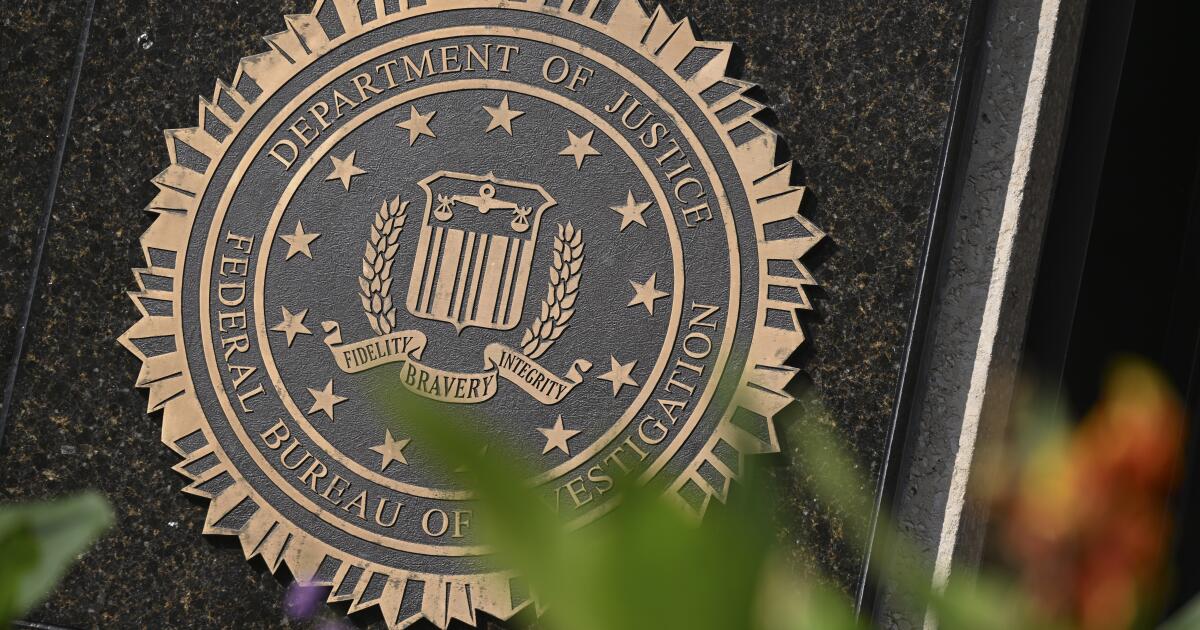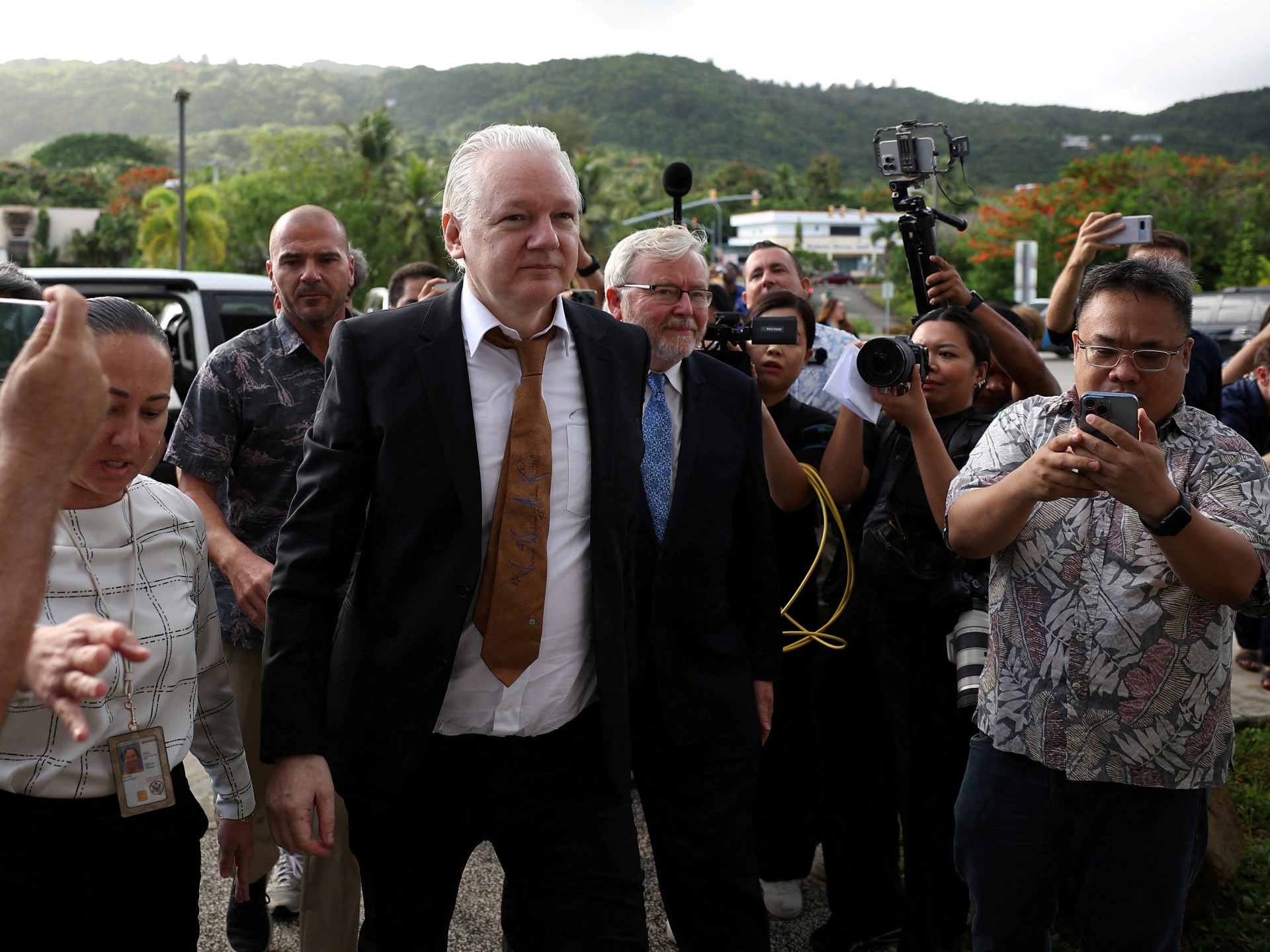Your morning jog or weekly basketball game may not be taking place on an Olympic stage, but you can use Team USA's techniques to get the most out of your workout routine.
It's not all about strength and speed. Mental fitness can be just as important as physical fitness.
That’s why the United States Olympic and Paralympic Committee created a psychological services team to support the mental health and mental performance of athletes representing the Stars and Stripes.
“I believe that happy, healthy athletes will perform at their best, and that's what we strive for,” said Jessica Bartley, senior director of the 15-member unit.
Bartley studied sports psychology and mental health after an injury ended her soccer career. She joined the USOPC in 2020 and is now in Paris with the 592 competitors on Team USA, whose ages range from 16 to 59.
Bartley spoke to The Times about how his team keeps Olympic athletes in top psychological shape and what we can learn from them. His comments have been edited for brevity and clarity.
Why is exercise good for mental health?
It gets you moving, it releases endorphins, and there are often a lot of social aspects that are really helpful.
There are a number of sports that exercise the brain in ways that can prove invaluable. Whether it's hand-eye coordination or strategy, they can improve memory, concentration, and even critical thinking.
What is the best way to get into the zone when it comes time to compete?
When I work with athletes, I like to know what their zone is. If a 0 or 1 means you're totally relaxed and a 10 means you're jumping around, where do you need to be? What's your number?
People say, “I'm at a 10 and I need to be at an 8 or a 7.” So we'll talk about ways to get it down, whether it's deep breathing, listening to calming music, or talking to your trainer. Or there are times when people say they need to be more motivated. That's when you see someone beating their chest or jumping up and down.
If you make a mistake in the middle of a competition, how can you move on instead of continuing to think about it?
I often teach athletes a reset routine. I used to play goalie, so I had a lot of time to think after being scored on. I would take off my goalie gloves and put them back on, which for me was a reset. I also wore an extra hair band on my wrist, and when I broke it, that meant I needed to get out of my head.
It's not just a physical reset, it also helps reset your mind. If you do the same thing every time, it will go through the same neural pathway to the place where your brain will reset. That can have a huge impact.
Do Olympic athletes have to deal with burnout syndrome?
Oh, yes. Everyone has a day when they don't feel like doing anything. That's when you have to ask yourself, “What's best for me? Do I need a recovery day, or do I really need to get in the pool or go to the gym?”
Sometimes we really need what we like to call a mental health day.
How can you mentally prepare yourself for exercise when you don't feel like it?
It's very helpful to think about why you're doing this and why you're striving. Do you have goals related to any activity or sport? Is there anything related to values like hard work or discipline, loyalty or reliability?
When you don't want to go to the gym, when you don't want to go for a run, think about something bigger. Link it to values.
Is sleep important for maintaining mental health?
Yes! We started doing mental health screenings for athletes before the Tokyo Games. We asked them about depression, anxiety, eating and body image disorders, drugs and alcohol, and sleep. Sleep was actually our number one issue. It's been a great initiative for us.
How many hours should we sleep?
Each person has their own differences, but in general we know that sleeping seven to nine hours is good. Sometimes, some of these athletes need ten hours.
I recommend that you get as much sleep as you need. If you didn't get enough sleep, a nap can be very helpful.
Is napping just for Olympic athletes or is it good for everyone?
To everyone! Naps are wonderful.
What if there's no time for a nap?
There are different ways to recharge your batteries. Naps can be one of them, but maybe you only need to rest for 20 minutes. Maybe you need to do a meditation or mindfulness exercise and just close your eyes for five minutes.
How to minimize the effects of jet lag?
We try to change one hour a day. That's the usual way to do it. If you can, it's very helpful. But it's not always possible.
What we tell athletes is that our bodies are amazing and they can compensate for things if they can get back on track. One or two nights of poor sleep will not affect your overall performance.
What advice would you give to athletes who have trouble sleeping the night before a competition?
I don't want to make too many changes right before a competition, so I usually tell athletes to do what they would normally do.
Do you need to relax by reading a book? Do you need to talk to someone on the phone and clear your mind? Can you put your mind in a really quiet place and think about things that are really relaxing?
Are there any mindfulness or meditation exercises that you find helpful?
There are some athletes who really benefit from an hour of meditation. I love something quick, something that helps me reset my brain, maybe closing my eyes for a minute.
If I feel like I need to take a moment, I love to eat mindfully. I'll savor a bite and think, “Oh my gosh, I haven't been fully connected to my senses today.” Or I can take a mindful walk and enjoy the sights, smells, and everything around me.
What do you eat when you need a quick nutritional boost?
Cashews. I often carry them with me. They have enough energy to keep me going physically.
I also always carry gummy bears with me. They have no nutritional value, but they keep me mentally fit. I am a big advocate of both.
Is it okay to be superstitious in sports?
It depends on how flexible you are. Maybe you put on your socks or shoes a certain way, or listen to certain music. Routines are very relaxing. They prepare your brain for success in a certain performance. It can be very, very helpful.
But I've also seen an athlete forget their underwear or their lucky socks and become completely disoriented. That's why your routine has to be flexible enough so that you don't completely fall apart if you don't follow it to the letter.
Are Olympic athletes made of stronger psychological stuff than the rest of us?
Not necessarily. There are people who are not bothered by scandals and who have a high tolerance for fanfare. There are also plenty of normal human beings who are fantastic at a particular activity.












